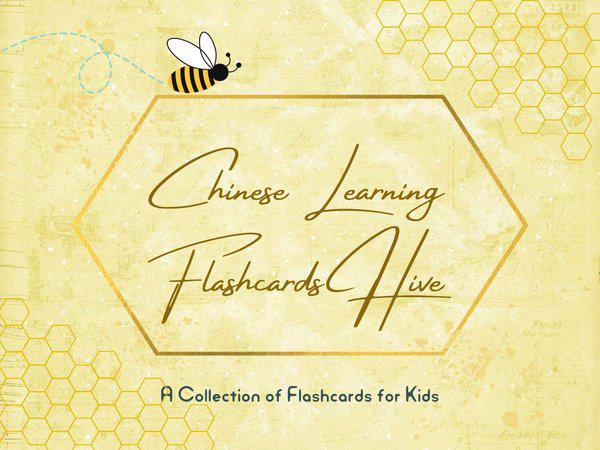
Home » Chinese language practice » How to Praise a Child and Some Praise Phrases in Chinese
How to Praise a Child and Some Praise Phrases in Chinese
It is well known that children need “positive enforcement” (“正面激励”). By definition, “positive enforcement occurs when a desirable event or stimulus is presented as a consequence of a behavior and the behavior increases.” (Wikipedia). Praise is one of the strategies to provide positive verbal feedback. However, if we praise our child all the time with sentences like “You are so good”, “You are so smart”, “You are so creative”… is it really good for him?
We want to give our child a quick verbal pat by giving out praises, however often without much thought. Praise motivates children, but sometimes just to receive more praise. When a praise is repeated many times, it becomes a label to a child and it can be harmful. For example, when a child is constantly praised as “You are so smart”, he may want to act to the expectation by not to take risks because that may make him look not so smart. And for other children, the praise that they are “smart” can actually make them act the opposite.
What is the most suitable way to praise a child in order to motivate him effectively? Let’s have a look together.
Praising Tactics
1. Praise the process, not the person 夸过程,不夸人
“You are great!”
“You are the best!”
“Good boy/good girl!”
…
Parents feel it easy to give their child praise like these. Well, to them, all the detailed steps along the growth of the child is amazing and deserves recognition and praise. For a child who is used to praises, if nobody praises him, he might feel at loss and does not know what to do. So instead of person praise, we should offer process praise:
-we can praise the strategy.
For example, instead of saying “You are great!” (你太棒了!), we can say “You found a good solution, fantastic!” (你找到了解决这个问题的方法,太好了。)
– We can praise with specificity.
For example, when a child offers a glass of water to his Mom, instead of saying “Good boy. You are the best!”(好孩子,你最好了。),we can say “Thank you for bringing me the water. I am very pleased. “(谢谢你给妈妈倒水,妈妈很高兴。)
[Tweet “When we praise our child, we need to praise the process, not the person. @Chinese4kids”]
2. Praise the effort, not the Smart 夸努力,不夸聪明
“You are smart!”
“How smart you are!”
…
This is another expression parents use often. However, if every single improvement a child has made is defined as “smart” by the parents, as the result, the child may believe that good grades are linked to being smart. This can lead to two scenarios: on one hand, the child can become arrogant rather than confident; on the other hand, they may try to avoid challenge because they don’t want any results that may not match the expectation of being smart.
So it is better to praise a child the effort.
For example, when a child plays a piece of music on violin, instead of saying “how smart you are!”, we can say “You played this piece so well. You must have practiced for a long time. ” (这首曲子你拉的真好听,你肯定练习了很长时间。)
[Tweet “Praise the effort, not the smart when we praise our child. @Chinese4kids”]
3. Be sincere: cut off “Good job” when it is not 真实的夸奖:不言不由衷
“Good job!”
“Well done!”
…
Sometimes, as parents and teachers, we want to encourage children to keep on the good work and we praise them for what they’ve done, sometimes even it is not the case. We often undermine children’s understanding of the intention behind our praise. When we praise poor performance with the hope to encourage a child, the child can actually perceive the insincere praise as a sign of failure.
We need to pay attention and offer authentic praise for real achievements. If there is no real achievement, it is better to give an objective comment, for example, “You have finished chapter 1.” or “You did it!”. Such comments acknowledge the effort and encourage children to take pride in their achievement, much better and more effective than the insincere praise.
Be sincere. One of the biggest mistakes we can make as parents and teachers is assuming that kids aren’t sophisticated enough to sense the intentions behind our praise. You might think that you’re encouraging a child by praising poor performance, but as it turns out, kids may actually perceive inauthentic praise as a sign of failure. Offer authentic praise for real achievements.
[Tweet “Be sincere, say what you mean to say when you want to praise a child. @Chinese4kids”]
How to Praise a Child in Chinese
Here are some praise expressions in Chinese. Use them to praise your child. Remember: praise the process, not the person; praise the effort, not the smart; and keep it real: cut off “good job” when it is not!
你真棒!
Nǐ zhēn bàng!
You are great!
你真聪明!
Nǐ zhēn cōngmíng!
You are so smart!
你太有创造力了!
Nǐ tài yǒu chuàngzào lì le!
You are so creative!
你真是个好孩子!
Nǐ zhēnshi gè hǎo háizi!
You are such a good child!
好样的!
Hǎo yàng de!
Good job!
做的好!
Zuò de hǎo!
Well done!
你最好!
Nǐ zuì hǎo!
You are the best!你找到了解决这个问题的方法,太好了。
Nǐ zhǎo dào liǎo jiějué zhège wèntí de fāngfǎ, tài hǎole.
You found the solution to this problem, that is good.
看上去你真的知道乘法口算表。
Kàn shàngqù nǐ zhēn de zhīdào chéngfǎ kǒusuàn biǎo.
It looks like that you know the multiplication table well.
这首曲子你拉的很好听,你肯定练习了很长时间。
Zhè shǒu qǔzi nǐ lā de hěn hǎotīng, nǐ kěndìng liànxíle hěn cháng shíjiān.
You played this piece of music very well. You must have practiced for a long time.
你做到了。
Nǐ zuò dàole.
You made it.
你做完(作业,功课…) 了。
Nǐ zuò wán (zuòyè, gōngkè…) le.
You finished (homework, lesson…).
这幅画你画的很用心。
Zhè fú huà nǐ huà de hěn yòngxīn.
You put your heart into this drawing.
…
You can download this list below:
<!–>
You May Also Be Interested:
- Chinese4kids Membership – a portal for busy Chinese teachers and parents
- Chinese learning flashcards Hive – a flashcards library that with regular additions of new quality Chinese learning flashcards
- Chinese learning worksheets collection – Also a part of Chinese4kids membership, this collection is for teachers and parents who want to have access to engaging worksheets and activity sheets created for kids learning Mandarin Chinese as an additional language
- Speak Chinese with Kids Course
- Chinese Vocabulary Made Easy Course












